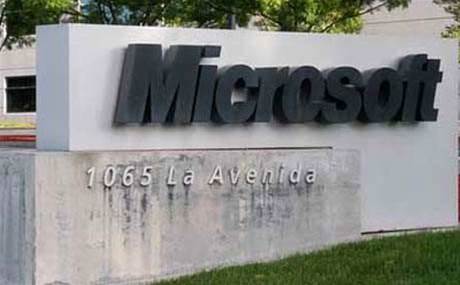Microsoft has launched a landmark lawsuit against the US government, arguing it has the right to tell its customers when a federal agency is looking at their emails.

The lawsuit claims the government is violating the US constitution by preventing Microsoft from notifying thousands of customers about government requests for their emails and other documents.
Microsoft argues the US government’s actions contravene the fourth amendment, which establishes the right for people and businesses to know if the government searches or seizes their property, as well as its first amendment right to free speech.
The lawsuit focuses on the storage of data on remote servers, rather than locally on people's computers, which Microsoft claims has provided a new opening for the government to access electronic data.
Using the Electronic Communications Privacy Act (ECPA), the US government is increasingly directing investigations at cloud storage providers, Microsoft claims.
The 30-year-old law has long drawn scrutiny from technology companies and privacy advocates, who argue it was written before the rise of the commercial Internet and is therefore outdated.
“People do not give up their rights when they move their private information from physical storage to the cloud,” Microsoft stated in the lawsuit.
It said the government “has exploited the transition to cloud computing as a means of expanding its power to conduct secret investigations".
A US Department of Justice spokesman declined to comment.
The lawsuit represents the newest front in the battle between technology companies and the US government over how much private businesses should assist government surveillance.
By filing the suit, Microsoft is taking a more prominent role in that battle, dominated by Apple in recent months due to the government’s efforts to get the company to write software to unlock an iPhone used by one of the shooters in a December massacre in San Bernardino, California.
Apple, backed by big technology companies including Microsoft, had complained that cooperating would turn businesses into arms of the state.
"Just as Apple was the company in the last case and we stood with Apple, we expect other tech companies to stand with us," Microsoft's chief legal officer Brad Smith said.
In its complaint, Microsoft said over the past 18 months it has received 5624 legal orders under the ECPA, of which 2576 prevented Microsoft from disclosing that the government is seeking customer data through warrants, subpoenas and other requests.
Most of the ECPA requests apply to individuals, not companies, and provide no fixed end date to the secrecy provision, Microsoft said.
Microsoft and other companies won the right two years ago to disclose the number of government demands for data they receive.
This case goes further, requesting that it be allowed to notify individual businesses and people that the government is seeking information about them.
Separately, Microsoft is fighting a US government warrant to turn over data held in a server in Ireland, which the government argues is lawful under another part of the ECPA.
Microsoft argues the government needs to go through a procedure outlined in a legal-assistance treaty between the US and Ireland.
Increasingly, US companies are under pressure to prove they are helping protect their customers' privacy.
The campaign gained momentum in the wake of revelations by former government contractor Edward Snowden in 2013 that the US National Security Agency routinely conducted extensive phone and Internet surveillance to a much greater degree than believed.
Microsoft’s lawsuit also comes a day after a US congressional panel voted unanimously to advance a package of reforms to the ECPA.
Last-minute changes to the legislation removed an obligation for the government to notify a targeted user whose communications are being sought.
Instead, the bill would require disclosure of a warrant only to a service provider, which retains the right to voluntarily notify users, unless a court grants a gag order.
It is unclear if the bill will advance through the US senate and become law this year.




.png&h=140&w=231&c=1&s=0)
_(20).jpg&h=140&w=231&c=1&s=0)





 iTnews Executive Retreat - Security Leaders Edition
iTnews Executive Retreat - Security Leaders Edition
 iTnews Benchmark Awards 2026
iTnews Benchmark Awards 2026
 iTnews Cloud Covered Breakfast Summit
iTnews Cloud Covered Breakfast Summit
 The 2026 iAwards
The 2026 iAwards












_(1).jpg&h=140&w=231&c=1&s=0)



